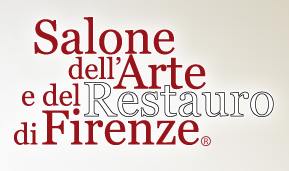giovedì 13 novembre 2014 ore 10:30
The design of an innovative CNT-based thermo-electrical device for Art Conservation: the IMAT Project
 Università di Firenze, Dipartimento di Ingegneria Industriale, in collaborazione con IAR, Future Carbon, SEFAR, Amorosi Studio, Lorenzo Conti Studio, TM restoration Centre, Nardini Editore, C.T.S, Pranas Gudynas Restoration Centre, Stichting Restauratie Atelier Limburg (SRAL). Università di Firenze, Dipartimento di Ingegneria Industriale, in collaborazione con IAR, Future Carbon, SEFAR, Amorosi Studio, Lorenzo Conti Studio, TM restoration Centre, Nardini Editore, C.T.S, Pranas Gudynas Restoration Centre, Stichting Restauratie Atelier Limburg (SRAL).
Giovedì 13 novembre dalle ore 10:30 alle ore 12:30 e dalle ore 14:30 alle ore 16:30 - Sala Edwards
The IMAT project, financed by European Community under the VII FP (FP7 – ENV – NMP – 2011 Proposal No: 283110 - IMAT – CP, years 2011-2014) advanced the most recent thermo-electrical superconductive nanomaterials, such as carbon nanotubes thus providing improved temperature control in terms of even heat distribution with minimal temperature fluctuations.
In particular it was aimed in creating innovative state-of-the-art precision instruments for mild heating and designed specifically for art conservation, in the form of lightweight, flexible, transparent and breathable CNT-based flexible mat heaters.
The developed mats are controlled by a small, programmable touch screen console that provides the operator unprecedented command of the temperature and heating pattern, characteristics that are unmatched in class in the field of art conservation.
The device’s flexible design architecture is advantageous in structural treatments, empowering conservators to critically apply mild heat in a targeted manner, either locally or over very large areas.
The portability and low energy consumption make the devised prototypes an ideal multi-use instrument for work in the field or in the laboratory, indispensable in the treatment of large scale works, but also in areas of limited access and are uniquely equipped for use in emergency response conditions.
Beyond its technical exactness, the IMAT device is easily transportable, durable, storable and quite economically accessible. This versatility will make it an indispensable addition to the museum laboratory and for conservators in private practice, targeting a very broad audience in the field, essentially all conservators worldwide using thermal treatments in one or another form.
Final results obtained in the IMAT project will be presented together with the most interesting application fields.
Relatori: Monica Carfagni, Rocco Furferi, Tomas Markevicius, Nina Olsson, Helmut Meyer, Reto Hegelbach, Kate Seymour, Laura Amorosi, Lorenzo Conti, Erika Kielè
sito web |